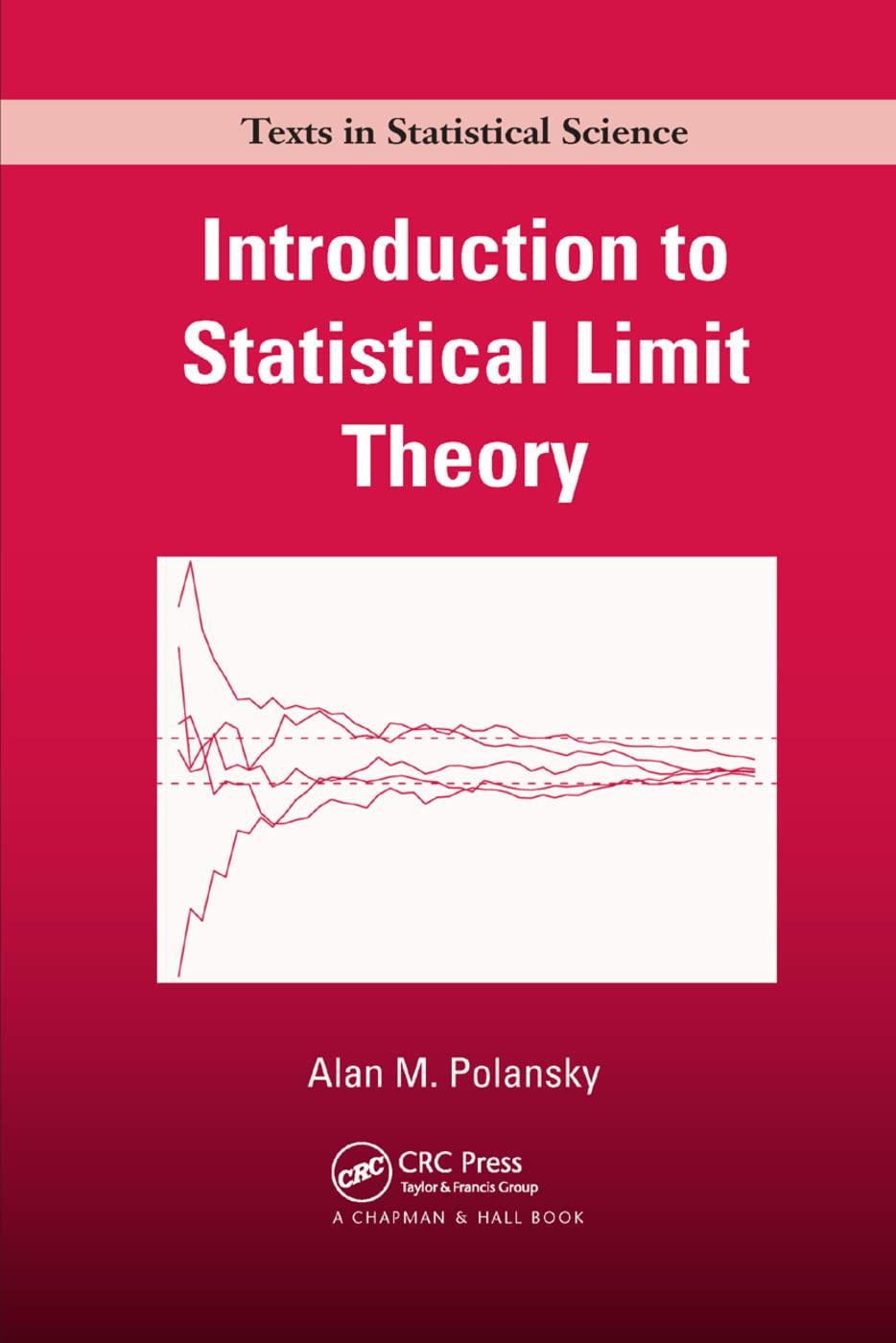Consider a probability space ((Omega, mathcal{F}, P)) where (Omega=(0,1) times(0,1)) is the unit square and (P) is
Question:
Consider a probability space \((\Omega, \mathcal{F}, P)\) where \(\Omega=(0,1) \times(0,1)\) is the unit square and \(P\) is a bivariate extension of Lebesgue measure. That is, if \(R\) is a rectangle of the form
\[R=\left\{\left(\omega_{1}, \omega_{2}ight): \underline{\omega}_{1} \leq \omega_{1} \leq \bar{\omega}_{1}, \underline{\omega}_{2} \leq \omega_{1} \leq \bar{\omega}_{2}ight\}\]
where \(\underline{\omega}_{1} \leq \bar{\omega}_{1}\) and \(\underline{\omega}_{2} \leq \bar{\omega}_{2}\) then \(P(R)=\left(\bar{\omega}_{1}-\underline{\omega}_{1}ight)\left(\bar{\omega}_{2}-\underline{\omega}_{1}ight)\), which corresponds to the area of the rectangle. Let \(\mathcal{F}=\mathcal{B}\{(0,1) \times(0,1)\}\) and in general define \(P(B)\) to be the area of \(B\) for any \(B \in \mathcal{B}\{(0,1) \times(0,1)\}\). Prove that \(P\) is a probability measure.
Step by Step Answer:






